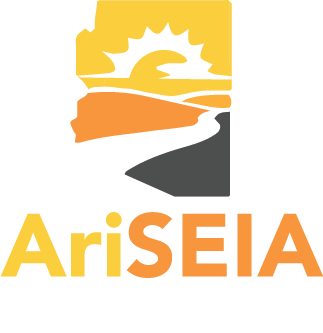|
On June 11th, the Arizona Corporation Commission will be reviewing a very significant decision from its own Line Siting Committee. In the decision, the Arizona Power Plant and Line Siting Committee rejected a request by Unisource to waive its own authority to review new thermal power plants in the state. To do so, the ACC would have to interpret Arizona law differently than it has for the last half century.
The Line Siting Committee is made up of 11 members. Six of those members are appointed by the corporation commissioners themselves. All six of the ACC-appointed members were appointed last year at this time. Roman Fontes representing the counties, David Kryder representing agriculture, Toby Little representing the general public, and Scott Somers representing the cities were appointed by the ACC on May 1, 2023. The appointments of Kryder, Little, and Somers were unanimous. Fontes was appointed 4-1 with Commissioner Tovar voting no. Dave Richins representing the general public and Jon Gold representing the general public were appointed on July 12, 2023 unanimously. Five of those six appointees voted no on Unisource’s request after a two-day hearing that resulted in a 463 page-transcript. Richins, Fontes, Little, Somers, and Gold all voted against Unisource. Here are comments taken from the transcript. Richins questioned Unisource stating, “so you don’t consider a CEC [certificate of environmental compatibility] would be part of the right thing to do, then, in this instance?” Little pointed out that “one of the important parts of the law says that the CEC would provide a single proceeding to which access will be open to interested and affected [persons].” Unisource is attempting to reinterpret A.R.S. § 40-360(9) in a way to absolve them of needing environmental review by the ACC. To do that, they have to prove that the turbines are separate from one another. Richins asked “that natural gas feeds into the whole facility from one location into that plant, into that generating station?” Fontes asked, “Is it one single gas contract or is it separate gas contracts, because you’re characterizing these as separate units that are operating independent and dispatching.” Little explained her vote against Unisource saying, “I believe that as a representative of the public, I have a responsibility to assure that the public has the right to express their voice in the siting of environmental impact for generation and transmission, and I think that clumping a bunch of smaller units all in one place does that. And I vote no.” Richins made the motion to deny Unisource’s request, which was seconded by Fontes. Explaining his vote, Gold said, “I too represent the people of the state of Arizona and while I believe you should build this plant, I believe a CEC in this case is necessary…. I don’t foresee you not getting one. But I have to say, this Committee is here for a reason.” The committee voted 9-2 to deny Unisource’s request. The committee then issued a written decision including its legal analysis denying Unisource’s request on May 2, 2024. The decision stated, “[Unisource’s] interpretation of A.R.S. § 40-360(9) would circumvent the manifest purpose of the line siting statutes and deprive the people of Arizona who are affected by the construction of these major facilities of their ability to participate in the process to mitigate the adverse impacts on the environment and their quality of life.” Pg. 6. The ACC commissioners should uphold the overwhelming decision of the committee they just appointed last year – the committee that listened to two days of testimony and oral arguments and reviewed dozens of exhibits. The committee got it right and the ACC should deny Unisource’s request. Doing anything else would needlessly cede half of the authority of the ACC’s own Line Siting Committee.
0 Comments
Leave a Reply. |
AriSEIA NewsKeep up with the latest solar energy news! Archives
July 2024
Categories
All
|
NEWS
See what AriSEIA is up to on the policy front.
The Arizona Solar Energy Industries Association (AriSEIA) is a 501(c)(6) non-profit trade association representing the solar, storage, and electrification industry, solar-friendly businesses, and others interested in advancing complementary technologies in Arizona. The group's focus is on education, professionalism and promotion of public policies that support deployment of solar, storage, and electrification technologies and renewable energy job growth and creation. |
FOLLOW Us |
Copyright © 2019 AriSEIA - All Rights Reserved

 RSS Feed
RSS Feed
